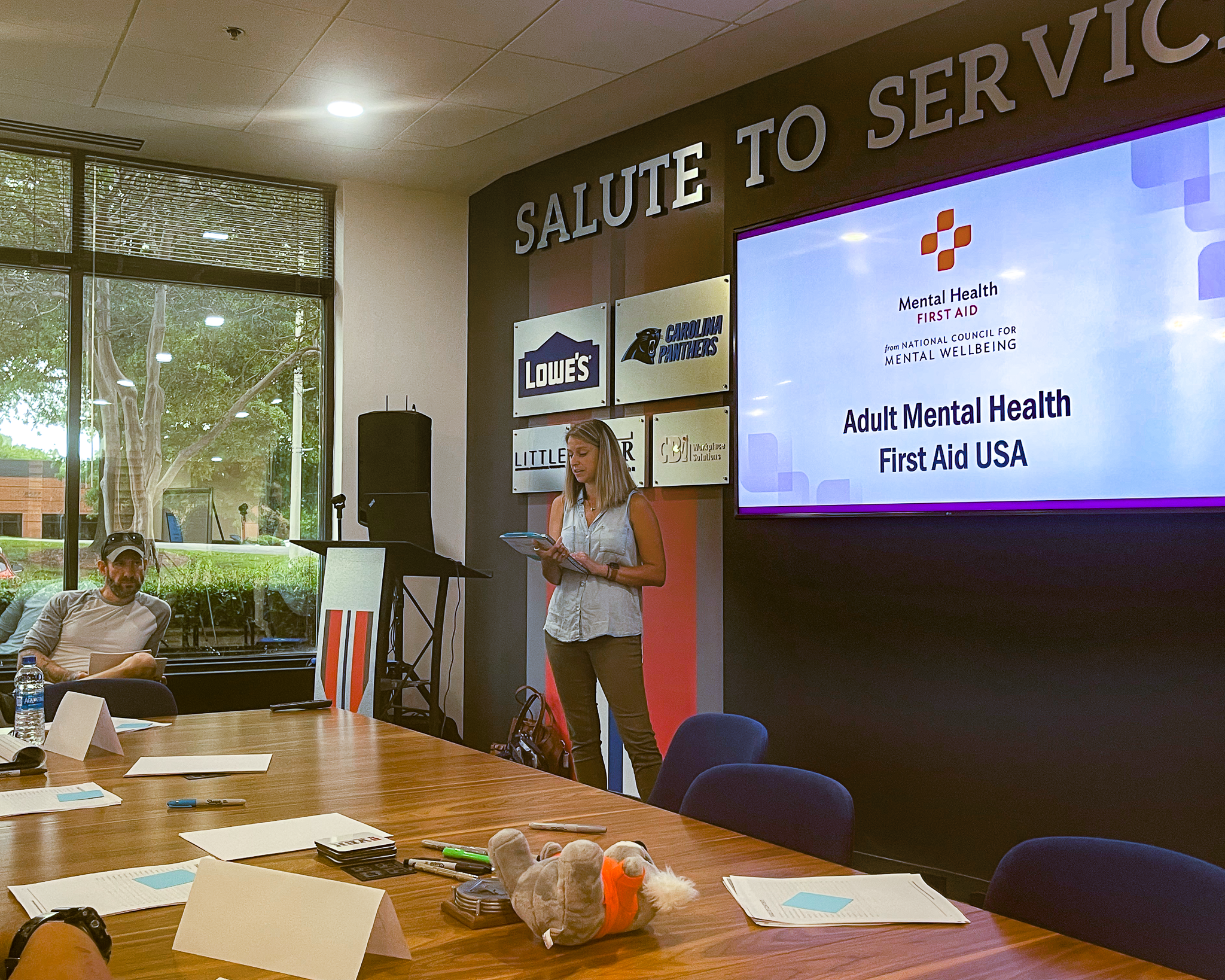Mental health first aid training
Mental Health First Aid teaches you how to identify, understand, and respond to signs of mental illnesses and substance use disorders.
This 8-hour training gives you the skills you need to reach out and provide initial support to someone who may be developing a mental health or substance use problem and help connect them to appropriate care.
This class is offered both in person and virtually.
Trainers
Eric Watts
Tim Driscoll
Chariden Lewis
Keri Hill
Jennifer Melton
Learn how to navigate and utilize the UNITE US platform to streamline referrals, enhance collaboration, and improve outcomes for Veterans and their families. This training equips service providers with the tools and knowledge to confidently manage cases, track progress, and connect with a statewide network of care. Whether you're new to UNITE US or need a refresher, our training sessions ensure you’re prepared to support those who serve with efficiency, accuracy, and compassion.
Crisis Intervention Team (CIT) Training
The Crisis Intervention Team (CIT) program is a community partnership of law enforcement, mental health and addiction professionals, individuals who live with mental illness and/or addiction disorders, their families, and other partners to improve community responses to mental health crises.
Basic Goals:
Develop the most compassionate and effective crisis response system that is the least intrusive in a person's life.
Help persons with mental disorders and/or addictions access medical/mental health treatment rather than place them in the criminal justice system due to illness related behaviors.
Trainers
Benji Horton
Brandon Wilson
QPR SUICIDE PREVENTION TRAINING
QPR stands for Question, Persuade, and Refer — the 3 simple steps anyone can learn to help save a life from suicide.
Just as people trained in CPR and the Heimlich Maneuver help save thousands of lives each year, people trained in QPR learn how to recognize the warning signs of a suicide crisis and how to question, persuade, and refer someone to help.
This is a 1.5-2 hour in-person training
Trainers
Keri Hill
Jenn Melton
Brandon Wilson
Benji Horton
Tim Driscoll
Critical Time Intervention (CTI) Training
Critical Time Intervention (CTI) is a time-limited evidence-based practice that mobilizes support for society’s most vulnerable individuals during periods of transition. It facilitates community integration and continuity of care by ensuring that a person has enduring ties to their community and support systems during these critical periods. CTI has been applied with veterans, people with mental illness, people who have been homeless or in prison, and many other groups.
Core Components
Addresses a period of transition
Time-limited
Phased approach
Focused
Decreasing intensity over time
Community-based
No early discharge
Small caseloads
Harm reduction approach
Weekly team supervision
Regular full caseload review
Joe Landry
Keri Hill
Benji Horton
Military culture and competency
This 2-hour in-person course is intended for both organizations and individuals who have little to no background or understanding of military culture.
This training includes some basic military terminology and concepts and the training for a Service member. Topics include the difficulties of transition to civilian life and the effects on Veteran families. This course will provide specific ways to communicate better, connect, and support the Veterans community, as well as have a better understanding of this population.
Trainers
Brandon Wilson




















